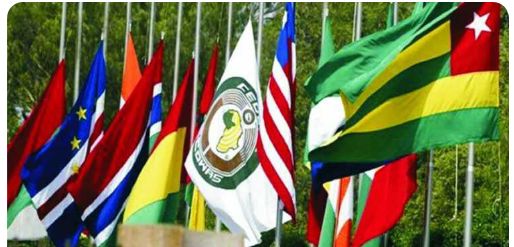News
ECOWAS Free Movement Protocols Not Threatening Regional Security – MP

By Angel-Linda Ike
The Economic Community of West African States ECOWAS) Parliamentarian, Edwin Snowe has cleared the air over the insinuation that the ECOWAS free movement protocols was threatening member states’ security
Border officials had on Wednesday said they place the security of their respective countries and people ahead of the implementation of the ECOWAS free movement protocols.
The argument arose when the ECOWAS joint committees on Social Affairs, Gender and Women Empowerment, Legal Affairs and Human Rights, Political Affairs, Peace, Security and African Peer Review Mechanism (MAEP), Legal and Human Rights, Trade Customs and Free Movement, had an interactive session with security officials of the Karang-Amdalai border (border between Gambia and Senegal) as part of activities to identify issues hindering the smooth implementation of the regional bloc’s free movement protocols.
However, during an interview with journalists in Banjul, Gambia at the end of the week-long delocalised joint committee meeting, Snowe said implementation of the ECOWAS free movement protocols would not undermine regional security.
He said, “We are not preventing anyone from doing security jobs, we are all adults and we knew where they were coming from.
“There is nowhere in our protocol that we asked the state security not to take the necessary security precautions because in the end of the day, we are our brother’s keeper.
“So, we are not downgrading security but what we are asking them to do is to respect the protocol of free movement.
“Free movement does not mean you should not check security but you can not intimidate the citizens, you can not take money from them, you can not extort them.
“You are asking each vehicle to pay 5000 CFA. How can paying 5000 CFA without a receipt equate with security?
“So, what we are talking about is not to compromise the security of any member state but to ensure that our citizens can move freely within the region.”
The lawmaker However acknowledged that more sensitisation was needed to get the message down to all citizens of the Community and security officials at the border
The joint committee has therefore recommended in its draft report “robust sensitisation campaigns in order to educate both citizens and relevant government officials on regional Texts such as the Protocol on Free Movement.”
“The Free Movement Protocol should be made available to all Immigration Officers, especially at the border posts. All training exercises of Immigration and Customs officials should include training on the relevant Community Texts.”
ECOWAS Parliament committees call for abolition of residence permit system
By Angel-Linda Ike
The Community Parliament of the West African States (ECOWAS)’ Committees on Gender and Women Empowerment, Legal Affairs and Human Rights, Political Affairs, Peace, Security and African Peer Review Mechanism (MAEP), Legal and Human Rights, Trade Customs and Free Movement have called for the abolition of residence permit.
The joint committee made this call to member states and the ECOWAS Commission in their draft report at the end of their delocalised meetings in Banjul, The Gambia.
The ECOWAS Residence Permit, also known as the ECOWAS Residence Card, is a document issued to citizens of member countries who wish to reside in another ECOWAS country for an extended period for business, employment, or personal reasons.
The ECOWAS Residence Permit system was established as part of the ECOWAS Treaty, which was signed in May 1975. This treaty aimed to promote economic integration and cooperation among West African states, including provisions for the free movement of people within the region.
The committees are of the opinion that the residence permit system is constituting a hindrance to the free movement of citizens within the region.
“The issuance of residence permits should be completely abolished in the region in conformity with the Community Text, the report which would still go through plenary’s approval stated in part.
The parliamentarians had earlier decried the non-implementation of the ECOWAS free movement protocols at borders within the West Africa region.
As part of the recommendations, the committees have also called for the staging of robust sensitisation campaigns to educate citizens and relevant government officials on regional texts such as the Protocol on Free Movement.
“The Free Movement Protocol should be made available to all Immigration Officers, especially at the border posts.
“All training programmes of Immigration and Customs officials should include training on the relevant Community Texts,” the draft report said.
The parliamentarians also demanded the deployment of officials at border posts to observe, record and report incidences of extortion and other malpractices.
The report also called on the ECOWAS Commission to “ensure that all signed Community Texts by Heads of State and Government are implemented by their Member states”.
“Ensure the full compliance of Member States in the implementation of the ECOWAS Biometric Identification Card,” it added.
The parliamentarians want the ECOWAS Commission and Parliament to conduct review exercises of all signed Community Texts at the national level in order to minimise the level of contradictions between the regional Texts and national laws.
The joint committees had earlier in the week organised a town hall meeting with stakeholders and an interactive session with border officials in the Gambia and Senegal to know the level of implementation of the ECOWAS free movement protocols and the challenges hindering their full implementation.
